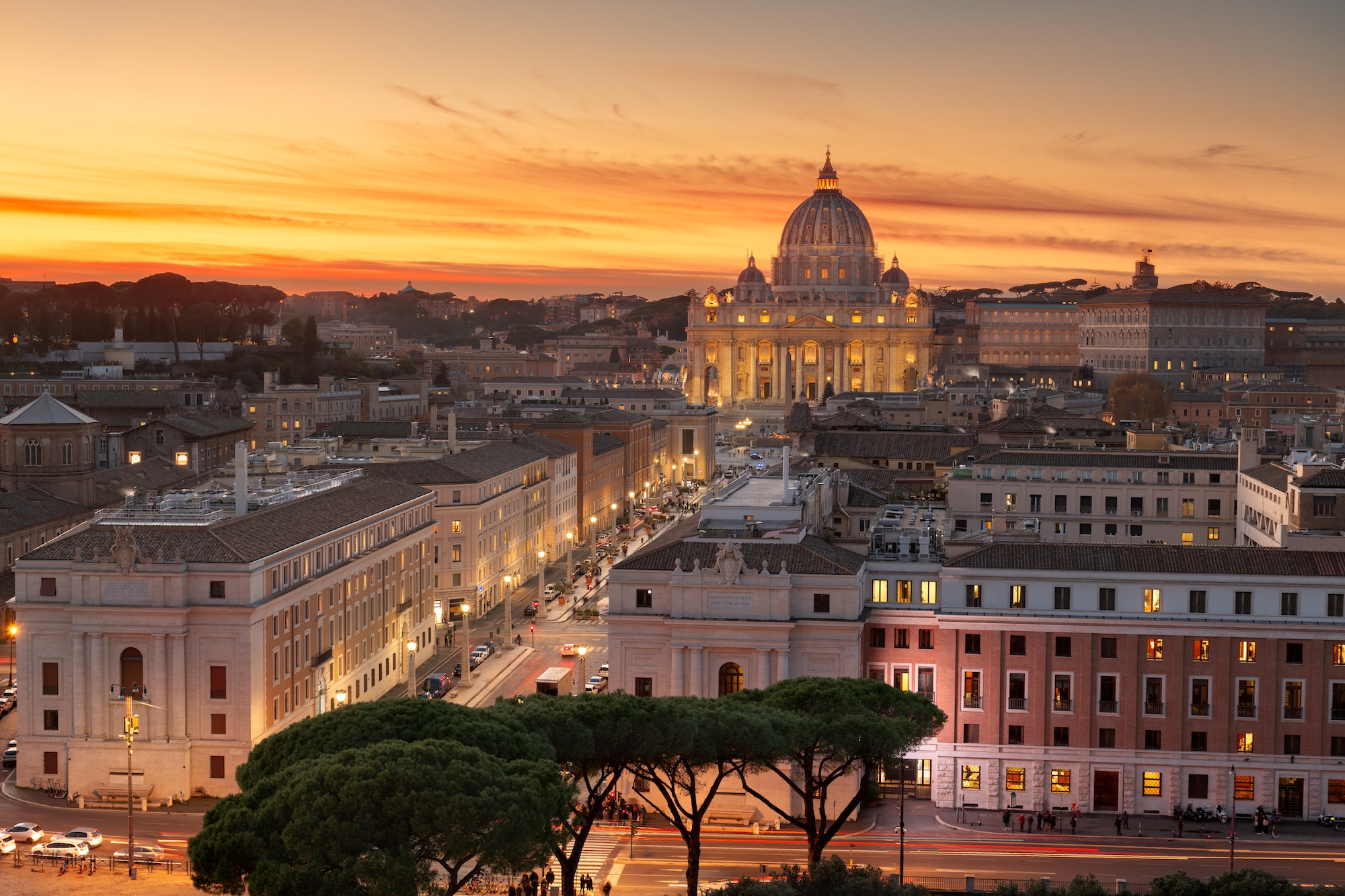
From a Catholic perspective, the Church, founded by Christ on St. Peter, holds the fullness of Christian truth through its sacraments, Tradition, and teachings.
Yes, Catholics are Christians. The Catholic Church is the original Christian Church founded by Jesus Christ, who entrusted it to St. Peter (Matthew 16:18). Catholics follow the fullest expression of Christianity through apostolic succession, Scripture, and Tradition. Other Christian groups, while sharing belief in Christ, are separated brethren who retain partial truths of the original faith.
Historically, after the Protestant Reformation in the 16th century, groups like Lutherans and Baptists broke away from the Catholic Church, identifying as “Christians” distinct from “Catholics.” From the Catholic view, this split fragmented the unity Christ intended, but the Church still recognizes these groups as part of the broader Christian family, though lacking the fullness of faith preserved in Catholicism.
The Catechism of the Catholic Church teaches that the Church is the “one, holy, catholic, and apostolic” body established by Christ (CCC 811). It holds that the Catholic faith, guided by the Magisterium (the Pope and bishops), preserves the complete deposit of faith—Scripture and Tradition—unlike other Christian denominations that may reject certain elements, like the authority of the Pope or the seven sacraments.
Catholics see the Bible as divinely inspired, but interpret it alongside Sacred Tradition, guided by the Magisterium. This contrasts with many Protestant Christians who adhere to “sola scriptura” (Scripture alone), rejecting Tradition and Church authority. Sola Scriptura is a false doctrine because no where in scripture does it define which books are to be in the Bible -- that is a tradition of the Church.
Catholics believe Christ instituted seven sacraments—Baptism, Eucharist, Confirmation, Reconciliation, Anointing of the Sick, Holy Orders, and Matrimony—as channels of grace essential to salvation. Many Protestant Christians accept only two (Baptism and the Lord’s Supper), viewing others as unnecessary. From the Catholic perspective, this reduction diminishes the richness of Christ’s gifts to His Church.
Catholics see the Pope as the successor of St. Peter, to whom Christ gave the keys of the Kingdom (Matthew 16:19), granting him authority to lead the Church infallibly on faith and morals. Most other Christians reject papal authority, favoring decentralized leadership or individual interpretation. For Catholics, the Pope ensures unity and fidelity to Christ’s teachings across time. But, if you think about it, everyone chooses someone to have the final say (Pastor Bob or themselves). Catholics know the successor of St. Peter is the leader of the Church.
Catholics honor Mary as the Mother of God and saints as intercessors, a practice rooted in Scripture (e.g., the wedding at Cana, John 2:1-11) and Tradition. Many Protestants view this as unbiblical or idolatrous, emphasizing direct prayer to God. Catholics clarify that veneration (honor) differs from worship, which is reserved for God alone, seeing saints as part of the communion of the faithful.
Catholics believe salvation comes through faith and works, empowered by grace through the sacraments (James 2:24). Many Protestants hold to “sola fide” (faith alone), arguing good works are a result, not a cause, of salvation. From the Catholic view, this separation risks neglecting Christ’s call to live out faith actively, as taught in the Sermon on the Mount.
Catholics believe Christ willed one Church (John 17:21), realized in the Catholic Church, though imperfectly lived out. Other Christians often see unity as spiritual rather than institutional, accepting denominational diversity. The Catholic Church works for ecumenism but holds that full unity requires return to its apostolic roots.
Catholic worship centers on the Mass, where the Eucharist is the real presence of Christ, a sacrifice re-presented from the Cross. Many Protestant services focus on preaching and singing, with communion as symbolic. Catholics see the Mass as the pinnacle of Christian worship, instituted at the Last Supper.
Catholics see priests as successors to the apostles, ordained to administer sacraments, especially the Eucharist and Reconciliation. Many Protestants reject a formal priesthood, citing the “priesthood of all believers” (1 Peter 2:9). Catholics affirm this universal priesthood but distinguish it from the ministerial role Christ gave His apostles.
Catholics view Tradition as the living transmission of Christ’s teachings through the Church, equal in authority to Scripture (2 Thessalonians 2:15). Protestants often reject Tradition, seeing it as human invention. Catholics argue it safeguards the faith’s integrity, as seen in early councils defining the Trinity.
For 1,500 years, Christianity was largely Catholic until the Reformation challenged papal authority and Tradition. Catholics see this as a rupture from the Church Christ founded, while Protestants view it as a return to biblical roots. The Catholic Church traces its continuity to the apostles, unlike newer denominations.
Catholics respect Protestants as brothers in Christ, sharing baptism and core beliefs, but see their rejection of sacraments and authority as incomplete. Vatican II calls for dialogue, recognizing their faith while inviting them to the fullness of Catholicism.
Catholics believe being “born again” occurs in Baptism (John 3:5), a sacrament imparting new life in Christ. Some Protestants use the term for a personal conversion experience. Catholics see this as valid but fulfilled in the sacramental life of the Church.
Catholic authority rests in the Magisterium, guided by the Holy Spirit to interpret revelation. Many Protestants rely on individual or congregational interpretation of Scripture. Catholics believe this centralized authority prevents error and preserves unity.
Catholics confess to priests because Christ gave them authority to forgive sins (John 20:23). Protestants typically confess directly to God, seeing no need for intermediaries. Catholics view this as Christ’s design for reconciliation within His Church.
Catholics believe in transubstantiation—the bread and wine become Christ’s Body and Blood (John 6:53-56). Many Protestants see it as symbolic or a spiritual presence. For Catholics, this mystery is central to faith and worship.
Catholics value the faith of other Christians but see practices like excluding sacraments or Tradition as departures from apostolic fullness. The Church seeks to share its treasures—like the Mass and Mary’s role—while learning from others’ zeal.